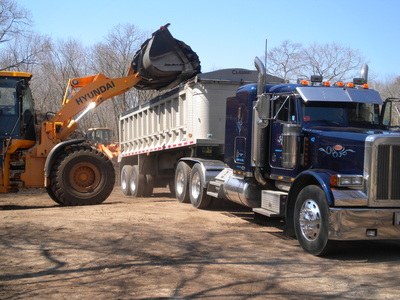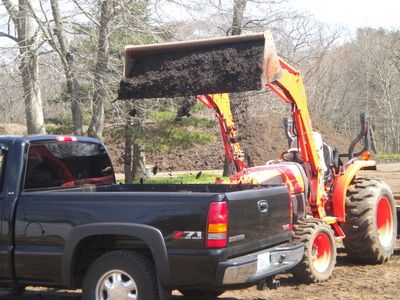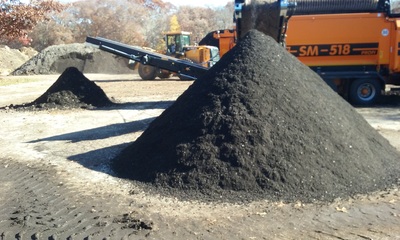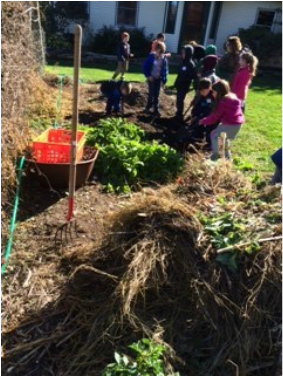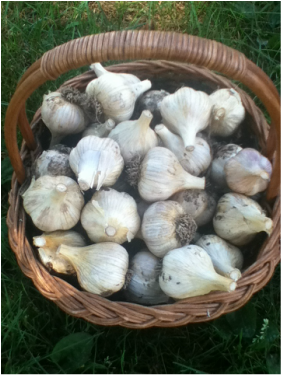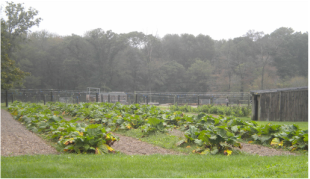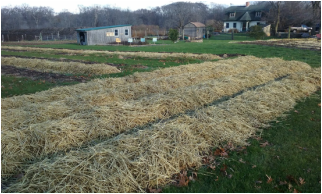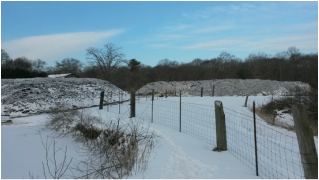For over 45 years Earth Care Farm has been producing high quality farm-made compost that gardeners and landscapers have come to rely upon to enrich their soil naturally. Please watch this short film that shows the history of our family farm.
Benefits of Compost
- provides a gentle, long lasting source of soil fertility
- improves the physical, biological and chemical nature of soil
- carries many beneficial microorganisms
- helps plants withstand extremes of weather
- improves tilth; water intake and holding capacity; drainage and aeration of soil
- if used correctly, our compost will not burn plants or cause excessive lush growth
- diminishes or eliminates a soil's requirements for fertilizers
- increases soil organic matter content that results in higher cation exchange capacity. this makes soil nutrients more available to plants and reduces leaching loss
- secondary and trace element deficiencies will seldom if ever appear in a well-composted soil
- helps to strengthen plant health so plants can ward off disease
- has no offensive odor (has a pleasant, earth-like smell)
- does not acidify soil like so many chemical fertilizers (soil tests indicate that our compost has on average a near neutral pH, which helps to maintain maximum favorable biological activity)
- increases biological activity, earthworm populations and overall life energy wherever applied
- gives you the satisfaction of knowing you are working in harmony with nature
Composting: A Cooperative Effort
Composting is a cooperative effort between man and other kingdoms in nature to accelerate the process of making rich, healthy, living soil. This is an active process happening all around us in nature. We are creating an environment that is attractive to our allies in decomposition: a nutrient rich, well-aerated pile of diverse ingredients. The actual transformation of raw materials into finished, healthy compost is performed by numerous beneficial bacteria, fungi, and lower animals along with the elemental forces of air, heat, and water. Composting is a remarkable biological recycling process. Among many other things, it demonstrates that there is no such thing as waste in nature.
Frequently Asked Questions
1. What is the difference between screened compost and raised bed mix?
Screened Compost is meant to be used as a soil amendment, improving the structure and fertility of loam or native soils when incorporated before planting. Raised Bed Mix is designed to be a complete growing medium for direct planting in gardens and large containers.
2. What is meant by a wholistically managed farm?
With the compost piles and in the fields we use sustainable practices to ensure a healthy condition to the land for future generations. We start by building soil health, which is a cooperative effort with the beneficial organisms that thrive in a healthy soil rich with compost. This biological activity makes nutrients available to the plants, and so we do not use any synthetic, chemical pesticides or fertilizers which would damage them and the insect predators and pollinators we rely on. We believe that direct communication between farmers and customers is the best assurance of methods that respect the web of life we are part of.
3. Why does Earth Care Farm compost cost more than some other compost products that are on the market?
Not all composts are created equally. We make our compost from the cleanest, most nutrient rich organic materials we can find from our local bio-region. Please refer to our list of ingredients to understand the wide array of valuable organic materials we use. In order to properly compost nutrient rich food scraps, fish gurry, shellfish, seaweed, animal manures, etc. it takes more diligent work, time and management; this equates to more cost of labor, equipment and fuel.
Most other composts on the market are made from only grass, leaves, and brush which are low in nutrients, may contain pesticide residues and inorganic trash. Some other composts contain sewage sludge which often contain household toxic cleansers and pharmaceutical drugs. These compost products are simply not worth as much as quality made farm compost.
